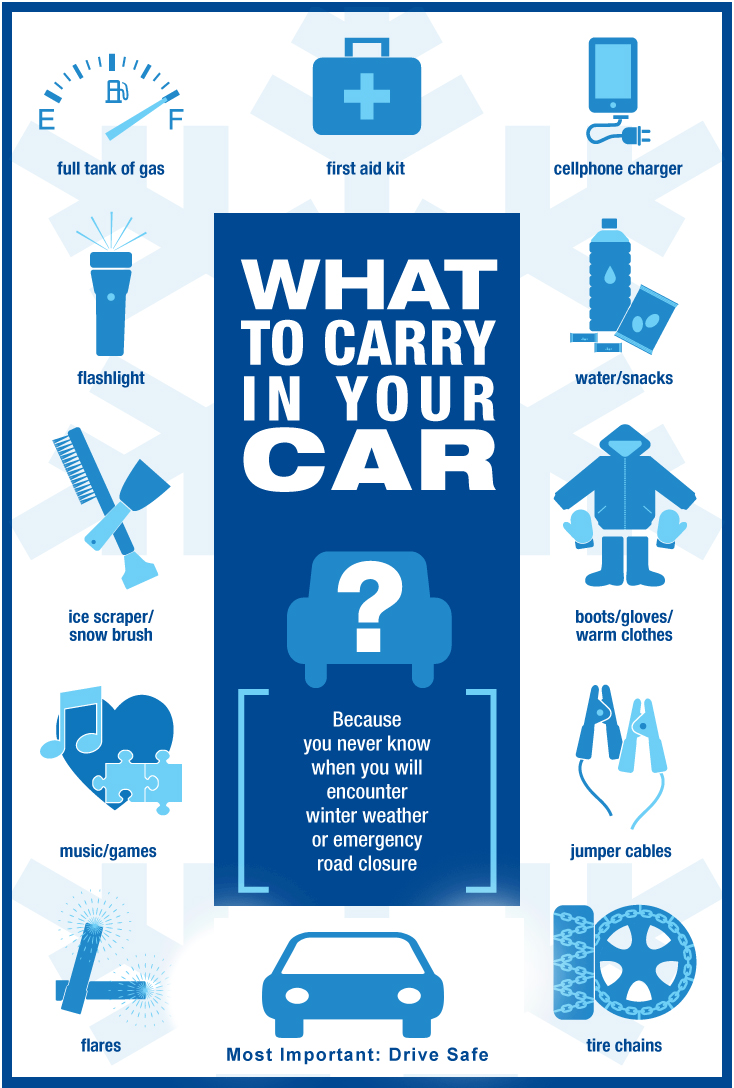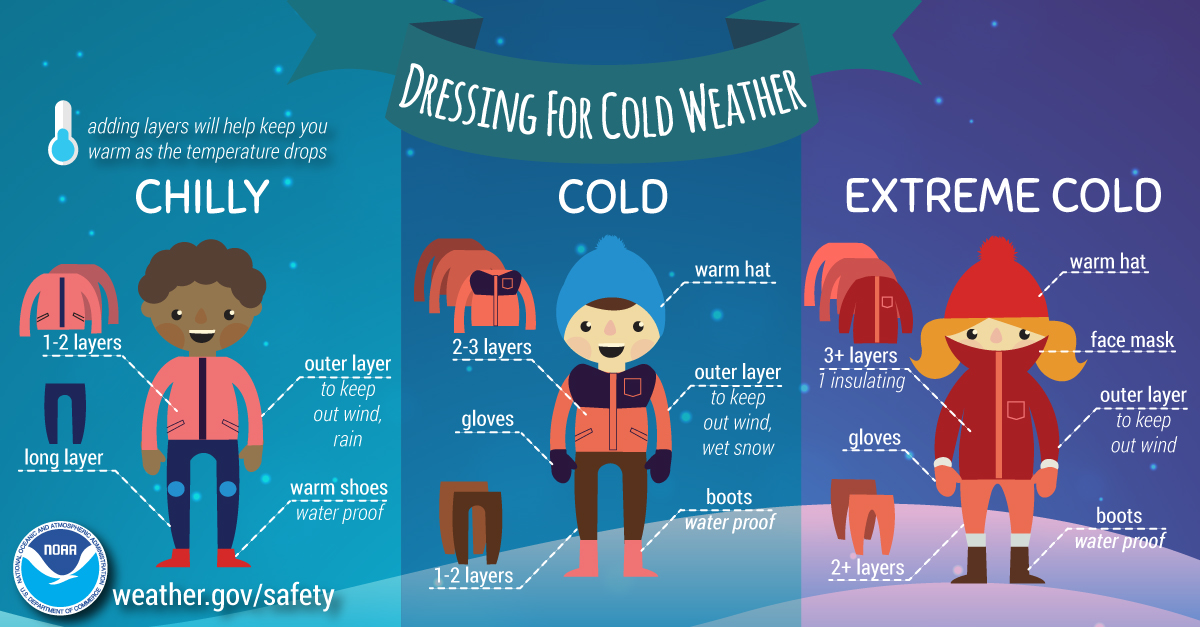Staying Warm, Safe During Cold Weather
Cold temperatures are expected to continue through the weekend. We’ve rounded up advice from several Boone County departments on how residents can stay safe during the cold winter months.
Article Highlights
- Learn the difference between wind chill advisories, watches and warnings.
- Pack a car kit to keep you warm and safe during unexpected traffic or emergencies.
- Keep your home safe and warm.
- Stay warm with proper layers if you do have to venture outside.
- Pay special attention to furry family members and limit their time outdoors.
- Find resources and support for neighbors in need.
Understanding Forecast & Advisories
The first step to take is to stay aware of forecasted weather. Local news, weather apps and websites, like the National Weather Service (NWS), all provide reliable and updated information on upcoming weather.
Winter winds can cause temperatures to feel much colder than they are. When that happens, NWS will issue an advisory, watch or warning for wind chill. Here’s a breakdown of each:
- Wind Chill Advisory: Very cold wind chills are expected between -10 degrees F to -24 degrees F.
- Wind Chill Watch: Dangerously cold wind chills are possible, with the potential for wind chills between -25 degrees F or less.
- Wind Chill Warning: Dangerously cold wind chills of -25 degrees or colder are imminent and could result in frostbite or hypothermia if precautions are not taken.
Stay Safe on the Road 
Be prepared for cold, winter weather when you’re on the go. Unexpected traffic delays or car trouble can – and do – happen. Having a few items on hand can help you stay warm and safe.
Cold Weather Safety Kit for Cars:
- Full tank of gas
- First aid kit
- Cellphone charger
- Water and snacks
- Ice scraper and snow brush
- Boots, gloves and warm clothes
- Music and games
- Jumper cables
- Flares
- Flashlight
Staying Safe and Warm at Home
Chances are the place you want to spend cold winter days is also one of the safest – your home. Still, it’s important to take a few precautions to ensure you and your loved ones stay safe in the comfort of home.
- Check carbon monoxide and smoke detectors. Carbon monoxide (CO) exposure and poisoning peak in winter months, according to the Centers for Disease Control and Prevention (CDC). Be sure your CO monitors and smoke detectors are working properly. Learn more about CO poisoning from the CDC.
- Heat your home safely with an inspected furnace. All HVAC systems (even those installed by homeowners) are required to be inspected by County Building Inspectors. This helps ensure systems are installed correctly and will not lead to safety hazards, including fire and CO poisoning.
- Warm up vehicles safely. Always open the garage door when a car is running – even if it’s just for a “few minutes” to warm up.
- Cover outdoor faucets. Reduce your risk of frozen pipes by turning off water lines to outdoor spigots. Homeowners may also want to cover them during extremely cold temperatures.
- Reduce your risk of frozen pipes indoors. Open cabinet doors under sinks and turn on the water to a very slow drip to help prevent pipes from freezing and bursting. This is only necessary if your heat isn’t working properly and the indoor temperatures dip below freezing.
For some, it’s not always possible to avoid going outdoors. First responders, utility workers and our own Boone County Public Works crews are still out and about in even the worst weather conditions to ensure residents are staying safe. If you or a loved one do find yourself heading outside, whether it’s for a work shift, running to the car or shoveling snow, keep the following tips in mind:
- Dress in layers.
- Add gloves, hat and scarf (or facemask).
- Wear waterproof boots.
- Avoid overexertion. (Sweat can quickly freeze and lead to unsafe situations, like frostbite or hypothermia.)
- Take frequent breaks.
- Stay hydrated.
Keep Pet Safe _Gwen.jpg)
Our loved ones aren’t the only ones who need a little extra care and attention during cold weather. Furry friends need a little special attention, too.
Avoid salted roads, sidewalks and driveways during walks. Rock salt, ice melt and other chemicals from treated surfaces can cause injuries, irritation and even burns to paws. Try booties to keep paws safe. If you do go out right after roads and sidewalks have been treated, try to keep your dog from licking or eating snow. Be sure to wipe their paws once you return home to get rid of any residue.
Keep an eye on (and under) cars. A car – and its engine – is an attractive place for outdoor cats to try to stay warm. Double-check under your car if you have outdoor cats in your neighborhood before heading out.
Resources for Our Neighbors In Need
For some residents, cold weather is more than an inconvenience. Families struggling to pay utilities or in need of reliable housing can face health and safety issues. Fortunately, there are several community organizations available to help those in need, including the Welcome House of Northern Kentucky, which helps shelter unhoused individuals in Boone County.
Every week in the winter, an internal team of County leaders meets to discuss weather forecasts and make a recommendation to activate emergency sheltering. Currently, the Boone County Winter Shelter has been activated until Wednesday, Jan. 24 at noon. The Welcome House outreach team works directly with those in need of emergency shelter. If you are in need of emergency shelter or know someone who is, please call the Welcome House directly at 859-801-8453.
Additional community resources include:
- Brighton Center– 859-491-8303 x 2300
- Northern Kentucky Community Action Commission– 859-586-9250
- Vincent de Paul– 859-341-3219
A recent LinkNKY article also shared ways residents can help those in need.

